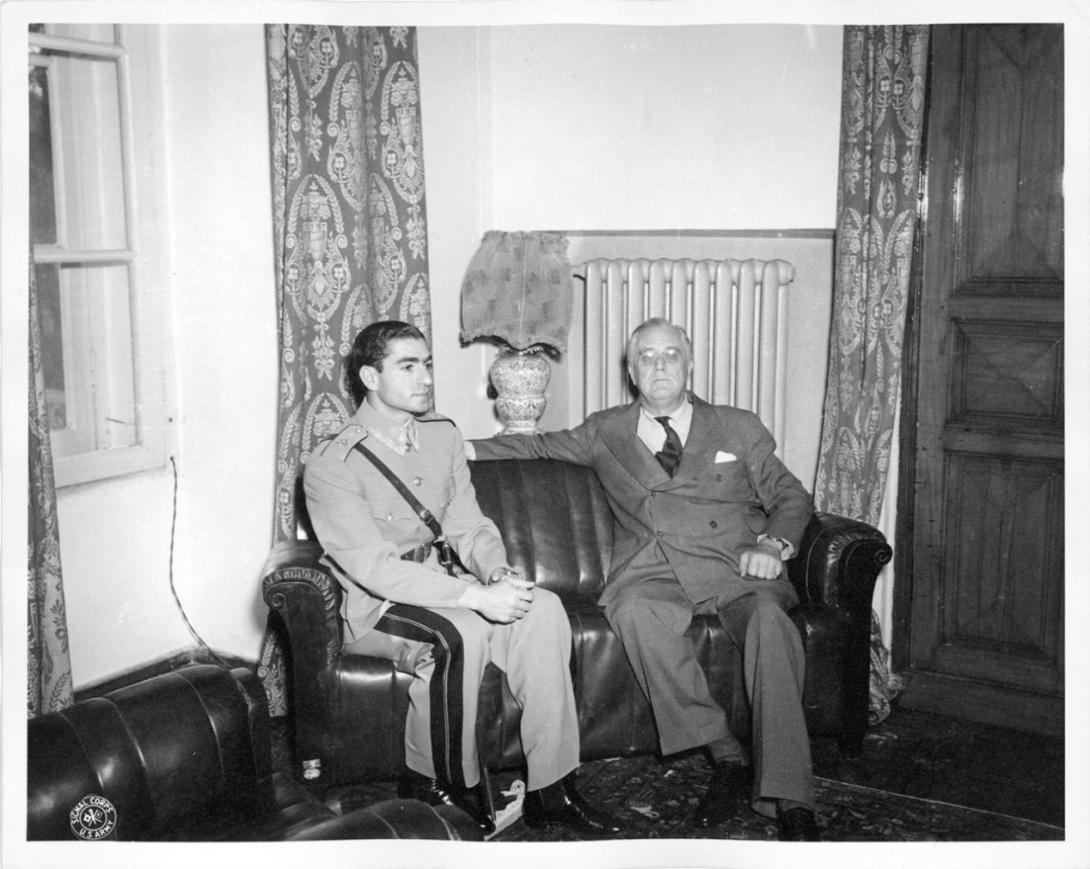On this day in 1953, the U.S. and British governments initiated a coup d'état against the democratically elected Prime Minister of Iran, Mohammad Mosaddegh. Mosaddegh had been preparing to nationalize Iran's British-owned oil fields.
Mosaddegh had sought to audit the documents of the Anglo-Iranian Oil Company (AIOC), later re-named British Petroleum, and to limit the company's control over Iranian oil reserves. When the AIOC refused to cooperate with the Iranian government, the parliament voted to nationalize Iran's oil industry and to expel foreign corporate representatives from the country.
In response, the British began a worldwide boycott of Iranian oil to pressure Iran economically and engaged in subterfuge to undermine Mosaddegh's government.
After considering military action, Britain opted for a coup d’état. President Harry Truman rejected the idea, but when Dwight Eisenhower took over the White House, he ordered the CIA to embark on one of its first covert operations against a foreign government.
The coup was led by an agent named Kermit Roosevelt, the grandson of President Theodore Roosevelt. The CIA leaned on a young, insecure Shah to issue a decree dismissing Mossadegh as prime minister. Kermit Roosevelt had help from Norman Schwarzkopf’s father: Norman Schwarzkopf.
The CIA and the British helped to undermine Mossadegh’s government through bribery, libel, and orchestrated riots. Agents posing as communists threatened religious leaders, while the US ambassador lied to the prime minister about alleged attacks on American nationals.
Some 300 people died in firefights in the streets of Tehran.
Mossadegh was overthrown, sentenced to three years in prison followed by house arrest for life.
The crushing of Iran’s first democratic government ushered in more than two decades of dictatorship under the Shah, who relied heavily on US aid and arms. The anti-American backlash that toppled the Shah in 1979 shook the whole region and helped spread Islamic militancy.
After the 1979 revolution President Jimmy Carter allowed the deposed Shah into the U.S. Fearing the Shah would be sent back to take over Iran as he had been in 1953, Iranian militants took over the U.S. embassy–where the 1953 coup was staged–and held hundreds hostage.
Megathreads and spaces to hang out:
- ❤️ Come listen to music and Watch movies with your fellow Hexbears nerd, in Cy.tube
- 💖 Come talk in the New Weekly Queer thread
- 💛 Read and talk about a current topics in the News Megathread
- ⭐️ August Movie Nominations ⭐️
reminders:
- 💚 You nerds can join specific comms to see posts about all sorts of topics
- 💙 Hexbear’s algorithm prioritizes comments over upbears
- 💜 Sorting by new you nerd
- 🌈 If you ever want to make your own megathread, you can reserve a spot here nerd
- 🐶 Join the unofficial Hexbear-adjacent Mastodon instance toots.matapacos.dog
Links To Resources (Aid and Theory):
Aid:
Theory:


Played through cyberpunk because i saw some claims that the story was good. Like the overall plot is kinda neat but the writing isn't great? And the way it's delivered kind of sucks. I'd rather have a cutscene than have to press a button randomly or make a meaningless dialogue choice. Especially there is a giant portion that takes place that takes place after the final fight which would've flowed much smoother as mostly a cutscene.
I did get blade hands and invisibility and basically became a horror monster for the last few hours of the game tho 10/10 would tear apart enemies again.
Edit: I get that a part of dialogue choices is that you get to colour the character as yourself but
spoiler
One of the key parts of the game is that V was stsrting to lose his sense of self over time with his chip implant. The dialogue choices should've vanished over time, and perhaps the player should've been forced into choiced somehow inherently different to how the player acted in act 1 to communicate that better.
I love cyberpunk because every element clashes against each other in a horrible fashion.